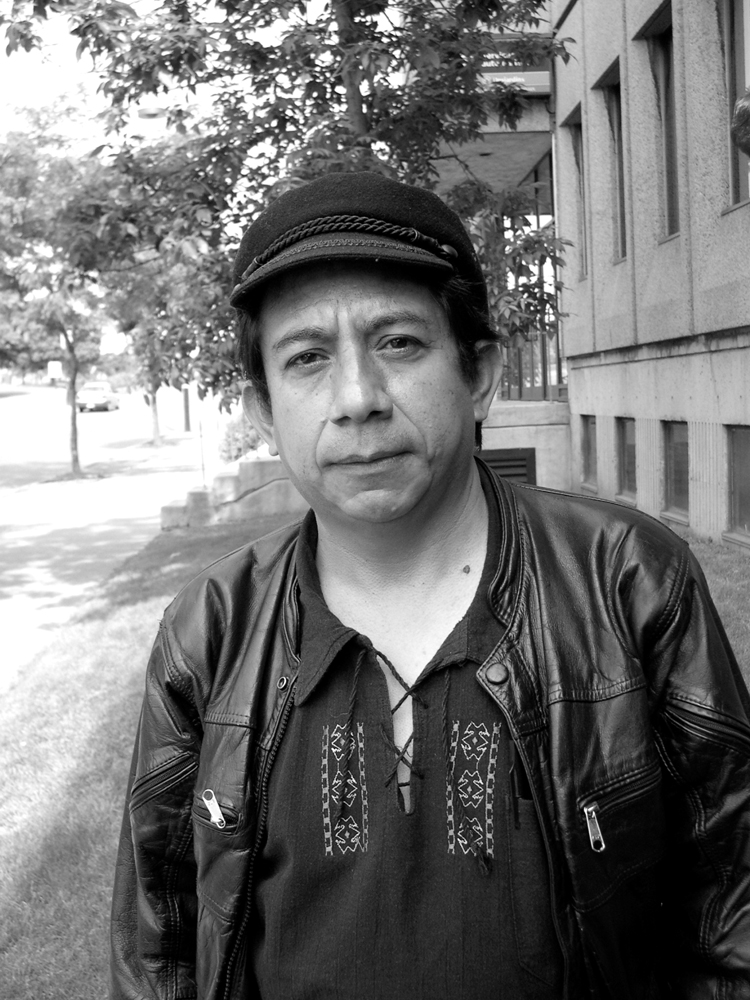
Evo Morales, Bolivia’s first indigenous president, has launched what he called an “agrarian revolution” by redistributing 9,600 square miles of land to the South American country’s Indian majority.
The June 3 announcement marked the first phase of a vast reform that will involve more than 77,000 square miles – an area larger than the province of New Brunswick – over the next five years.
“We want to change Bolivia,” Morales, who leads the Movement Toward Socialism party, told thousands of Indians gathered in the eastern city of Santa Cruz to receive land titles. “Getting back the land means we are getting back all the natural resources, we’re nationalizing all the natural resources.”
Indeed, the move follows a May 1 decree to nationalize Bolivia’s natural gas industry. According to Oscar Olivera, however, the gas nationalization will be a cakewalk compared to the agrarian reform, because rich and powerful landowners are fiercely opposed to the redistribution.
Olivera is a union official with the Federaciôn de Trabajadores Fabriles (Federation of Manufacturing Workers) and is close to the Morales government. He gave an interview to the Nation after a meeting with officials of the CSN union federation in Montreal June 7.
The mostly white landowners, known in Bolivia as the lati-fundistas, control roughly 90 per cent of Bolivia’s arable land, Olivera explained. Bolivia’s native majority have been dispossessed since the Spanish Conquest, pushed into the highlands or used as cheap labour on the huge white-owned farms or in the mining industry.
Despite the historical injustice and the fact that the reform affects only unused or illegally occupied lands, said Olivera, the political right in Bolivia and beyond want to make a stand over redistribution because it could have an influence throughout the Americas.
“The land holds all of Bolivia’s wealth,” Olivera observed. “So there will be consequences to this. I fear there will be confrontations.”
The latifundistas have vowed to form so-called “self-defence” groups. Olivera says that some landowners have already engaged former paramilitary death squad members from Colombia as mercenaries to train and lead these groups.
“Bolivia is on the verge of major change,” said Olivera, who also helps run the Escuela del Pueblo Primero de Mayo, a work-place-based school of activism whose former director is now the official spokesperson for Evo Morales. “The latifundistas and other powerful right-wing groups want to break our country before it can happen.”
But Bolivia’s native majority intends to defend its political and economic gains won after Morales’ election last January. Olivera said several indigenous groups are organizing to fight off any threat from the landowners.
Despite his union’s support for the Morales government, Olivera said the pace of the government’s land redistribution is too slow. Already, according to reports, some enemies of the reform are paying people to occupy other lands to create disturbances.
“I think it is too cautious. It should happen faster in order to take away the opportunity for the latifundistas to organize resistance,” said Olivera.
The changes in Bolivia mirror progressive change in a number of Latin American nations in recent years – especially Venezuela, whose president, Hugo Chavez, is a close ally of Morales. While U.S. attention has been turned toward the Middle East, democratic left-wing movements have been able to make progress throughout the region, including in Argentina, Brazil and Chile. The next test is in Mexico, where progressive presidential candidate Andres Manuel Lopez Obrador is neck and neck in the polls for the July 2 vote.
Perhaps nowhere, however, is change more profound than in Bolivia. The election of Morales, a former coca leaf grower, represents more than a turn to the left; it means major social change for a country whose native majority has been systematically deprived of power or its rightful share of the economic pie.
“The question of the land could provoke a civil war and affect the stability of the whole continent,” said Olivera. “But it will also finally give power to indigenous peasants in Bolivia, those who have never had it.”

